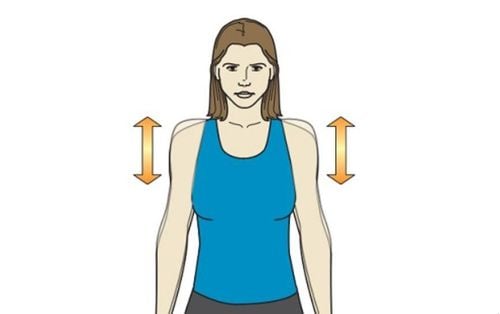Smoking has serious health impacts on both smokers and those exposed to the secondhand smoke. Therefore, the sooner you quit smoking, the more you protect the health of many people. However, some medical analyses suggest that quitting smoking can increase blood pressure. The following article will help you understand more about smoking and the way of quitting smoking, along with the risk of increased blood pressure afterwards.
1. The deterioration of cardiovascular health when smoking in the long term
Many analyses indicate that the smoke released into the environment from cigarettes contains toxic gases such as nicotine, tar, cyanide, and formaldehyde,.... Besides, long-term smokers have an increased risk of developing cancer, stroke, gastrointestinal diseases, and oral health problems. The toxins in cigarettes are also a leading cause of reduced sexual performance. Many patients who have died from cardiovascular diseases were smokers. The longer and more frequently you smoke, the greater the danger to your health. Therefore, doctors and healthcare professionals often advise quitting smoking to protect a healthy heart.
Quitting smoking is a challenging process. Not everyone who wants to quit succeeds. About 70% of smokers have thought about quitting, but only 5% manage to do so. Therefore, it is important to consult with a doctor for guidance on quitting smoking to avoid discomfort and fatigue.
2. Quitting Smoking Increases Blood Pressure
Quitting smoking is a very long and difficult process. Only a small number of smokers have the determination to break this habit. After quitting, you may experience a lack of concentration, increased appetite, weight gain,... The effects after ceasing smoking can lead to an increase in blood glucose levels, resulting in higher blood pressure. Some individuals are diagnosed with diabetes after quitting smoking. This is also considered a reason why only a few people successfully quit smoking entirely.
The reason quitting smoking causes weight gain and obesity is due to the fact that the body's metabolism hasn't returned to normal levels yet. The enzymes that help metabolize fat haven't recovered and started functioning, leading to fat accumulation. Additionally, those who quit smoking have a more sensitive sense of taste, which makes them enjoy their meals, and increased hunger leads to excess calorie intake. Your weight will increase over time after quitting smoking, which affects middle-aged and older adults more than teenagers.
3. The progression of the body when stopping smoking
Quitting smoking requires a long-term commitment. Over time, as you quit smoking, your body will start to adapt and gradually improve, returning to a normal state of health. Here are the changes that occur at various stages from the moment a smoker begins to quit:
20 - 60 minutes after the last cigarette, heart rate can decrease. After that, blood pressure also decreases, and the circulatory system tends to adapt back to the states before smoking.
12 hours after quitting smoking, the process of eliminating residual carbon monoxide from cigarettes begins. This process continues until the carbon monoxide level in the body drops to a permissible level and increases the oxygen concentration in the body.
1 day after quitting smoking, blood pressure decreases, and cardiovascular issues also reduce gradually.
2 days after quitting smoking, nerve function improves, helping the senses of smell and taste to return.
3 days after quitting smoking, the nicotine level in the blood is almost zero. At this time, the body sends signals that make you crave cigarettes and feel uncomfortable. This period partially determines the success of quitting smoking if you resist smoking again.
1 month after quitting smoking, lung function gradually stabilizes.
After the first quarter of quitting smoking, circulatory system health has significantly recovered.
9 months after quitting smoking, lung damage begins to heal and cilia gradually recover. Mucus in the lungs is expelled, increasing its anti-inflammatory ability.
1 year after quitting, you will reduce your risk of coronary artery disease by 50%.
5 years after quitting smoking, arteries and blood vessels recover. The risk of blood clot formation and stroke significantly decreases.
10 years after quitting smoking, you greatly reduce the risk of developing cancers of the throat, pancreas, …
15 - 20 years after quitting smoking, your body will reach a state similar to before you started smoking. Health risks significantly decrease as you are no longer exposed to the toxic components of cigarettes.
4. Benefits after quitting smoking
The habit of smoking poses serious dangers to the smoker's health. It accelerates the onset of cardiovascular diseases and cancer. However, if you are determined to quit smoking, all these issues can be minimized. Your health will gradually recover to the level it was before you started smoking.
Additionally, after quitting smoking, you will no longer suffer from low blood pressure and heart or lung diseases. Each year you successfully quit smoking, you progressively enhance and improve your health.
Quitting smoking can lead to high blood pressure, partly due to lifestyle changes. Initially, as your organs are recovering, metabolism is slow. You need to supplement with fiber and combine it with appropriate exercise. As your health improves, issues of high blood pressure or the risk of diabetes after quitting smoking will be controlled. To learn effective ways to quit smoking with minimal side effects, contact a specialist for support and advice.
Please dial HOTLINE for more information or register for an appointment HERE. Download MyVinmec app to make appointments faster and to manage your bookings easily.













